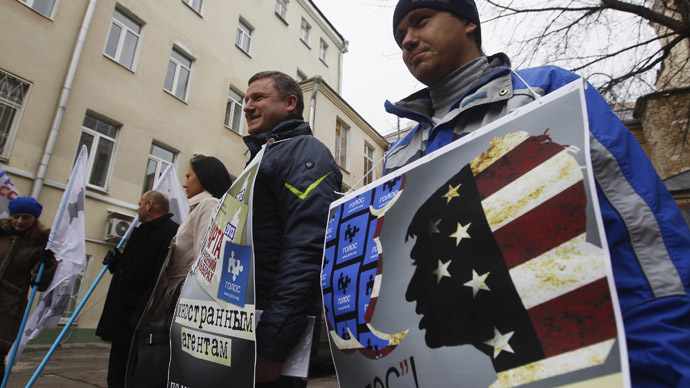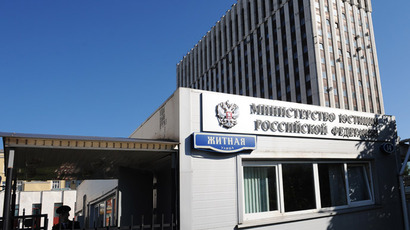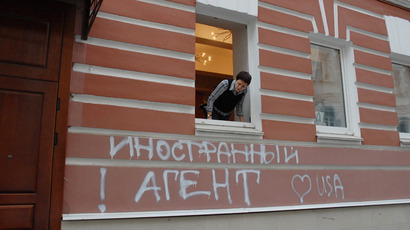Election monitoring NGO to dissolve over repeated demands to register as foreign agent

Russian NGO Golos has announced it plans to liquidate and re-register after the Justice Ministry insisted on registering it as a foreign agent even though financing from abroad stopped last year.
The dissolution procedure will start soon, deputy executive director of the Golos Association, Grigoriy Melkonyants told the RSN radio on Friday.
The decision came after the Justice Ministry replied to an enquiry from Golos about the registering procedure, and said the NGO should file an application to be put on the foreign agents list even though it had not received foreign sponsorship since last November, when the new law came into force.
“We are filing a request to liquidate our organization and start the procedure to register a new organization, this was the decision. The law reads that the registration as a foreign agent must happen before the organization gets engaged in fund raising and political activities. The procedure to getting out of this register is not described at all,” Melkonyants said.
Last week a court in Moscow refused to overturn an earlier decision to fine the head of the Golos Association Liliya Shibanova 100,000 roubles (just over $3000) for refusing to register her NGO as a foreign agent. Earlier, the court ruled as lawful the decision to fine the NGO 300,000 roubles (under $10 thousand) for the same offense.
The law on foreign agents makes failure to register an
administrative offence punishable by fines of up to 300,000
roubles for officials and up to 500,000 roubles (over $16
thousand) for organizations.
Russian media and activists have voiced concern over the law when it was just introduced and a short time later when the Justice Ministry and prosecutors launched a major nationwide inspection checking if the “Foreign Agents Law” was duly observed. Foreign Human Rights groups and some governments also criticized the practice saying it was pressuring activists and threatening the existence of their groups.
Russian officials always replied that the law did not include any sanctions against the foreign-sponsored groups, but only sought to better inform Russian citizens about possible motives and backgrounds of those who took part in the political process.
The independent elections monitor Golos Association was the first group the courts recognized as having broken the law. According to Russian Financial Monitoring agency, over its work period the association received 675,000 roubles from Switzerland and 3.7 million roubles from Norway (about 21,000 and $115,000 respectively).
At the same time, Russia’s top politicians, including President Vladimir Putin said the foreign agents law could still be altered and that Russian legislators were open for suggestions. On Friday the question was raised again and the deputy head of the Lower House’s committee for public organizations, Yaroslav Nilov, told the State Duma that his committee had received no suggestions so far.
“We agree that any legal rules call for improvement and we are
ready for this. Come talk to us, write to us, the doors of our
committee are always open. But we only see the discussion in the
mass media and not where the real efforts are taken to improve
this law,” the MP complained.
Nilov also admitted that problems often arose due to the
exuberance by regional officials who wanted to demonstrate their
loyalty to the federal center.














